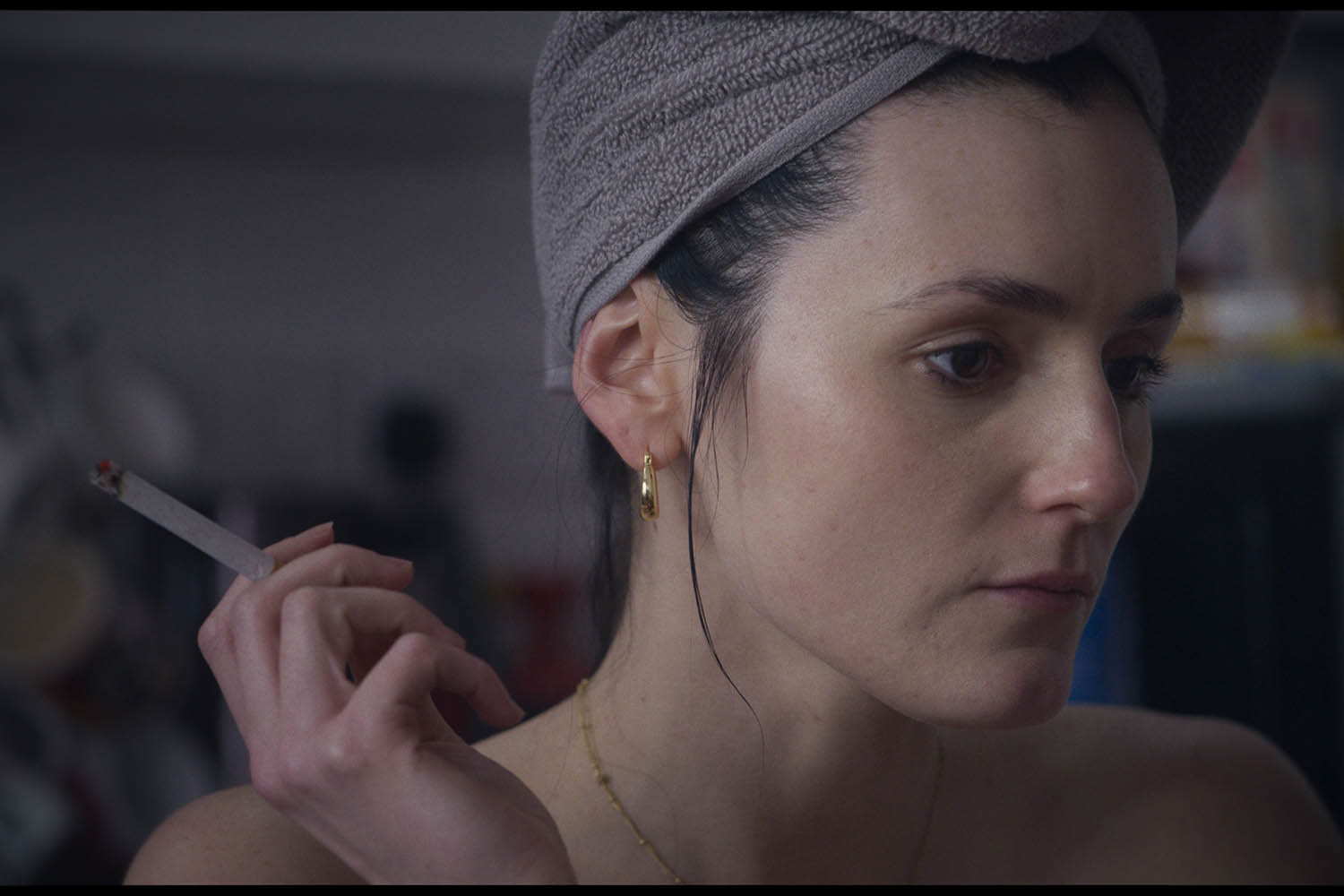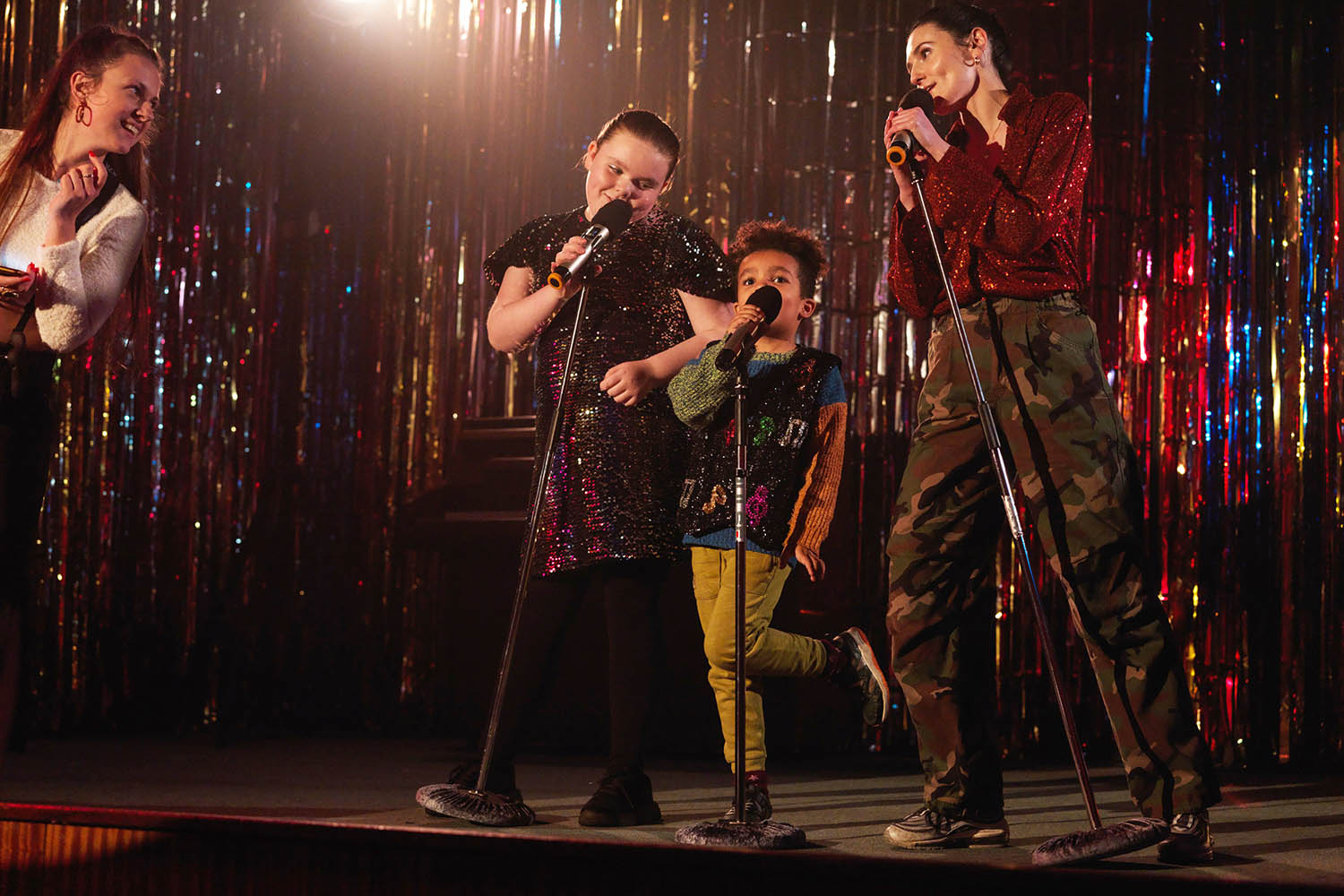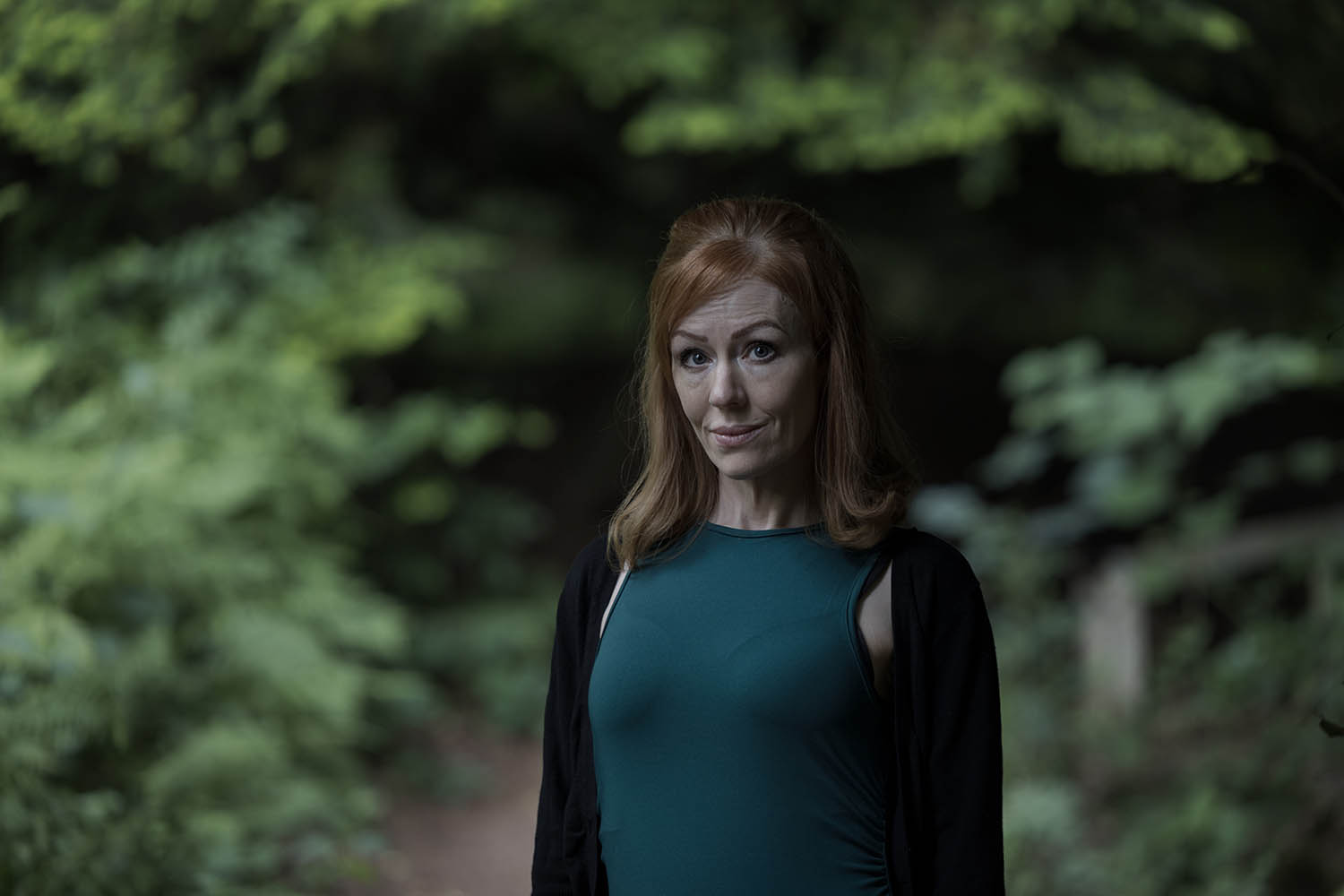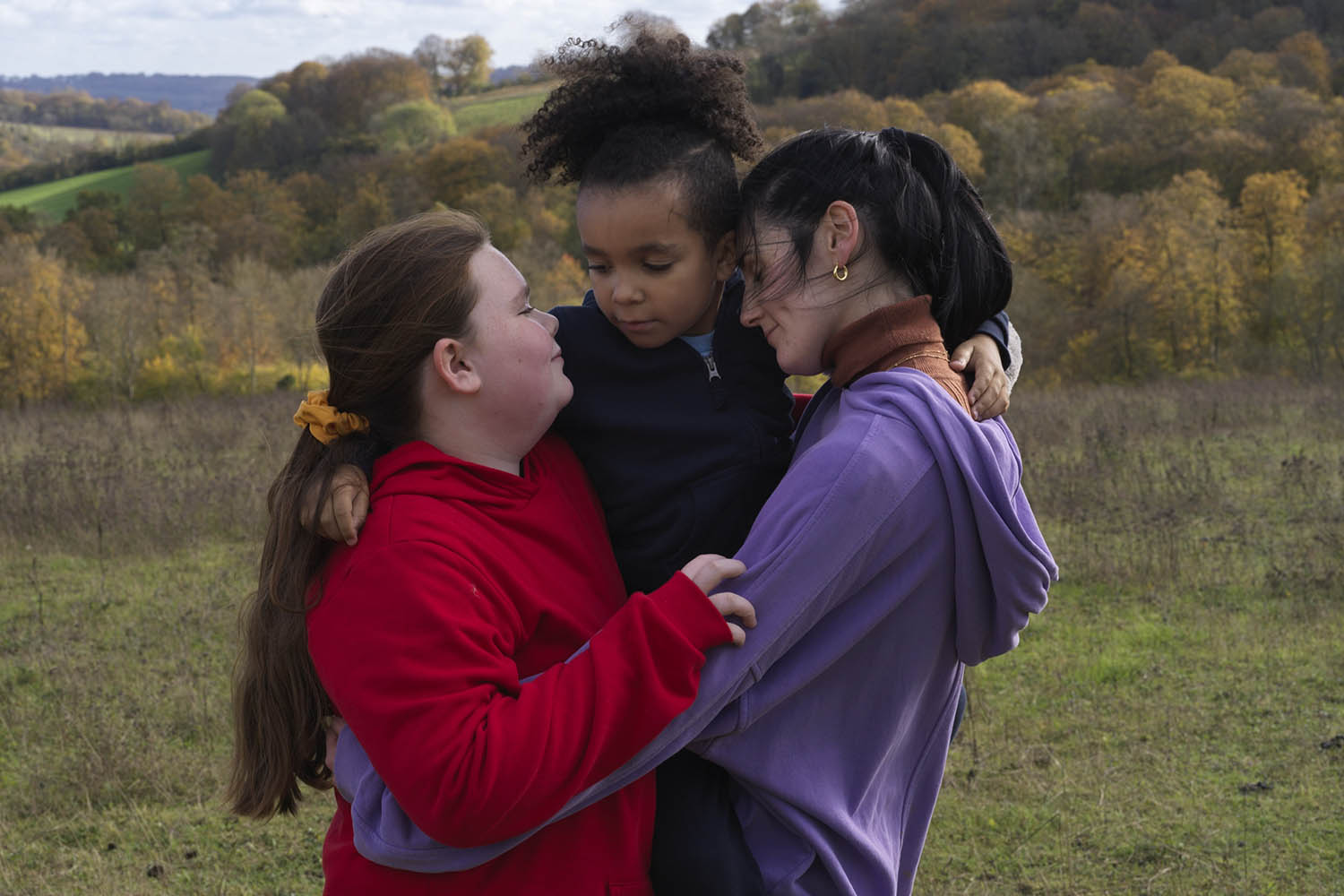As a journalist who reports on the family court – which frequently removes children from abused and traumatised women – I find words written by Friedrich Nietszche often reverberate in my mind: “the state is the coldest of cold monsters”.
Watching the opening scenes of the film Lollipop, as Molly Brown, played by Posy Sterling, emerges from a short spell in prison and attempts to regain custody of her children, whom she had signed into foster care, I was reminded once again of Nietszche’s words, and felt something very close to rage.
Molly leaves prison with nowhere to go. She sleeps in a park. When she asks the council for accommodation, she encounters the intransigence of its housing application process. A council worker informs her that by going to prison she has made herself intentionally homeless. “When you make your application without your children, you’re classed as a single person and only entitled to a one-bedroom flat,” she’s told by the official, behind a Perspex screen. And so Molly’s troubles really begin.
Lollipop is writer and director Daisy-May Hudson’s debut feature. The Observer's critic Wendy Ide last week described it as being, “as wrenchingly powerful as anything I have seen in the cinema this year”. It follows Hudson’s award-nominated documentary Half Way, which describe d s her own family’s experience of homelessness. Lollipop began life as a documentary, Hudson told me on a Zoom call during a break from touring the UK for preview screenings.
After meeting a woman in 2018 who was speaking at a conference about having her baby removed at birth by the family court, she had wanted to make a documentary exploring why social services appear unable to support more mothers and babies to stay together. Legally, however, the restrictions on publishing what takes place in real family court cases made that too difficult: it was suggested instead that a drama would allow her more scope.

Posy Sterling as single mother Molly Brown, who becomes homeless after a brief spell in prison
Hudson sought advice about the heartbreaking process from Emilia Porter, the woman from the conference. Credited – to her clear delight – as “script consultant and lived experience adviser”, Porter joins us on the call, her bright blue eyes offsetting her pale, freckled face. She explains how she had to make extensive changes to her life to satisfy social services that she could parent her baby son – a journey that informed the evolution of the film.
Trauma from being sexually assaulted as a child, domestic abuse, and a suicide attempt after a mental health collapse all contributed to Porter’s older children being taken into care. But she is adamant that by the time she gave birth to her youngest son, her mental health had been stable for about a year. To have any chance of her baby being returned, she knew she had to convince a judge that she could maintain that stability. But how?
Just as Molly in the film blindly casts around to try to work out what she needs to do to get her kids out of care, much of what Porter did to convince social workers and the court that she could be a good mum was “guesswork”, she explains.
“In the beginning, my local authority was helpful. But things changed when [they felt] I didn’t make changes quickly enough, or in line with what a social worker or a team thought I should be doing. But the target was never stipulated. Sometimes I worked out the answer I needed to give to one professional, but the next time, another professional demanded a different answer. It was emotionally exhausting. The goalposts kept being moved,” she says.
Porter did know she had to show she was committed to a different kind of parenting. “So just like with my other children, I insisted I would breastfeed my baby even though I wasn’t seeing him every day,” she recalls. It was hard work, especially without the skin-to-skin contact that mothers most need to keep their milk flowing. “I expressed and expressed, and we had three contact sessions a week when I could feed him myself,” she says.
Newsletters
Choose the newsletters you want to receive
View more
For information about how The Observer protects your data, read our Privacy Policy

The Observer’s Wendy Ide described Lollipop as ‘wrenchingly powerful’
Porter managed to keep paying the rent on her council house, so she had a stable home. One teenage son was living with her, and she showed she was looking after him properly. She stayed separated from the abusive partner she’d broken up with. Over six months of observations and interviews, her baby’s guardian, appointed to represent the child’s best interests to the family court, felt able to recommend that he come home.
Porter and Hudson speak as a team, rapidly filling in information they think the other might have missed in answering my questions. After several years of WhatsApp messages whizzing back and forth between the two, Hudson asked Porter to advise on many of Lollipop’s critical scenes regarding how local authorities interact with mothers who are at risk of losing their children to the care system.
Hudson says that to write the screenplay, she needed to know details such as: “What does it feel like, in your body, to have your children removed without a choice?” She says: “It’s such a brutal separation … and it’s global, whether you are a woman from an Indigenous background and have your children taken because of that, or whether it’s Irish Catholic women … there’s a history of women being told they’re not good enough, and having their children removed.”
She bridles a little when I suggest that I’ve seen copious evidence in family court files that some children must be removed, because it would be dangerous to leave them with their mothers. “I think where it’s complex and layered is that those homes can still be loving,” she says.
And she’s right. But Porter herself is clear that love is not always enough. “Sometimes the authorities have to step in,” she says, firmly. “The bit I struggle with is what they do next.” Porter acknowledges that she was “homeless, escaping domestic abuse, ending up pregnant, and I ran wild because I had no form of self-regulation”. But, she says: “No authority stepped in and said ‘we can see that you need support and help here in order to bring your family back together. Let us hold your hand.’”
The facts behind the film are stark. At the charity Women in Prison, head of communications Miranda Dobson says “a short custodial sentence can cost a woman her home, her job, and her children. We know that in 95% of cases when a mother goes to prison, her children leave the family home. On release, she is left to rebuild from nothing, navigating a system that rarely meets her needs.”
The charity confirms that there is minimal or no statutory entitlement to housing resettlement support on release from prison. A woman could be remanded, lose her children, default on her rent, lose her housing, be found not guilty – then be freed, as Molly cries out at one of Lollipop’s crisis points, with “fucking nothing”.
In the film, Molly fights exactly this kind of catch-22. She’s told by a social worker that she can’t get her children back unless she has somewhere to live. Then she goes back to see the housing officer, who tells her she needs to have custody of her kids to be allocated a big enough house. Molly can’t believe the illogicality of the system. “You’re saying I can’t get somewhere to live unless I have my children!” she tells the officer, who shrugs.
“The prison service works really hard to make sure women aren’t released with no fixed abode, to at least find stopgaps,” says Andy Keen-Downs, the CEO of Pact, the charity that supports prisoners, people with convictions and their families. One programme that runs in some prisons provides about three months’ accommodation so people don’t end up rough sleeping, he explains, and there is “some accommodation, not much” specifically for women. But it might be “70 miles from where their mum is looking after the kids. We need a much more flexible approach nearer to women’s families. It can still happen that women are sleeping rough.”

The film’s ‘script consultant and lived experience adviser’ Emilia Porter
What would Hudson and Porter see as the way to prevent the kind of downward spiral into which Molly is drawn, when mothers leave prison and their lives are in chaos?
What’s really needed, Porter says, “is somebody to sit alongside you and say: ‘Right. These are the physical things your family needs. We’re going to get you a home, so we’re working with housing on that. We’re going get you some counselling; we’re working with the NHS on that. We’ll get you into training so you stand a chance of getting a job.”’ She barely draws breath. “‘Then we also need to address the domestic abuse issue. This domestic abuse organisation is also going step in. We’ll help you to understand what’s happened in your family life to get you to this point so that you can learn accountability, and make changes.’” She grins, because it just makes such obvious sense; for years, Porter has advised councils on how to work with parents embroiled in the care system.
Hudson smiles back at her. “ What I’ve learned in my own life is the safer I feel and the more supported I feel, the more I’m able to take accountability over my actions and the way that I relate to people,” she says. “And we can’t do that when we’re in survival mode.”
As Lollipop plays out, we see the effects of Molly being pushed right to the edge of what she can emotionally withstand: her own frustration, anger and despair are bleakly believable, but it is even more difficult to watch the unfolding disaster through her children’s reactions. In a beautifully understated performance by Tegan-Mia Stanley-Rhoads as Ava, the bone-deep desire of a child to be with the mother she loves bashes hard against the disappointment of having her trust undermined when Molly repeatedly lets Ava and her little brother Leo down.
In the end, a friendship with another homeless single mother brings Molly hope that she might be reunited with Ava and Leo – and the attention of the cold monster of the state is diverted towards someone else’s children.
Lollipop is in cinemas now
Photographs by MetFilm/PA, Karen Robinson, Gary Calton

